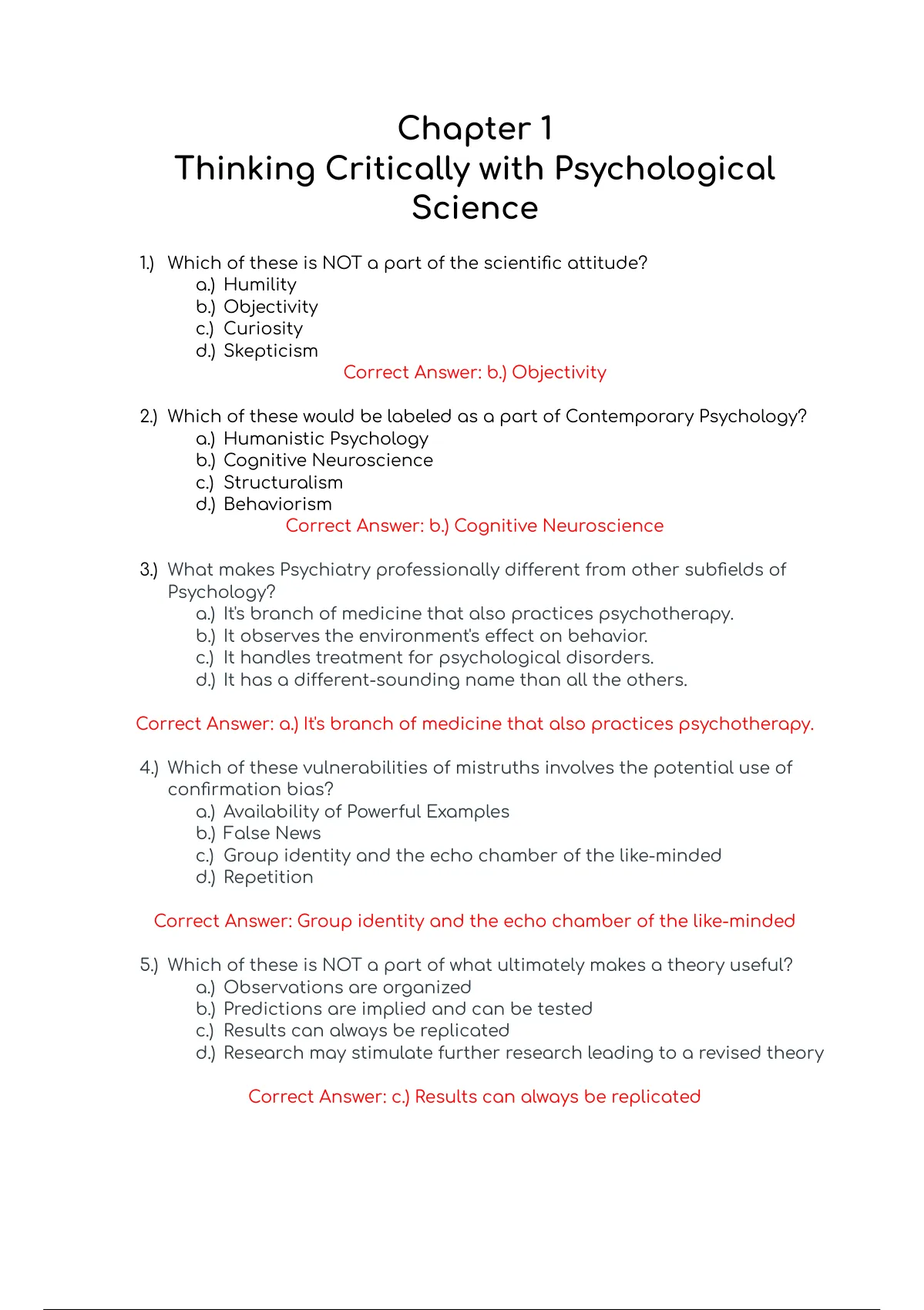Alright, let’s get this thing going. I decided to tackle the Chapter 1 psychology quiz on McGraw Hill Connect. I mean, psychology’s always been something that’s caught my eye, you know? So, I figured, why not give it a shot and see how much I really know.

First things first, I logged into McGraw Hill Connect. It’s pretty straightforward, to be honest. Once I was in, I found my way to the psychology section and there it was, Chapter 1. Clicked on that, and the quiz loaded up. Nice and easy.
The questions started rolling in, and let me tell you, some of them were a bit tricky. I remember one asking about the goals of psychological scientists. I paused, thought about it for a bit, and then it hit me. They’re all about trying to observe, describe, predict, and explain how people act and think. Another one asked what attitudes are at the core of the scientific approach, I selected Critical thinking without hesitation. These are two questions that bothered me a lot.
There was this other question about “analytic introspection.” I had to stop and think, “What was that again?” It took me a minute, but then I remembered it’s a way to break down complex mental stuff into simpler parts. It’s like taking apart a big puzzle to see all the little pieces that make it up. Not so bad after all.
Then came a question about which perspective looks at the basic parts of things like perception and thinking. That was a bit of a head-scratcher, but after thinking through it, I went with the one that seemed to fit best. These questions are really a test of memory. And a question asked “Which statement about the scientific basis of psychology is MOST accurate?”, I selected “Psychologists state the facts, formulate and test hypotheses” confidently, it’s too easy.

I also made sure to jot down some key terms that kept popping up, like “Mental Processes”. It’s like, you see these words a few times, and they just stick with you. You gotta keep these in mind if you want to do well.
I gotta say, there was one about Gestalt psychology that threw me off a bit. I vaguely remembered it’s something about seeing the whole picture rather than just the parts. Like, “the whole is greater than the sum of its parts,” or something like that. I went with my gut on that one. I searched the definition of Gestalt psychology on the web, it said that “Gestalt theory emphasizes that the whole of anything is greater than its parts.”, that’s interesting.
One question asked about how psychologists use scientific methods, and I was like, “Yeah, that’s easy.” They watch what people do, try to figure out why they do it, and then try to guess what they’ll do next. It’s all about understanding behavior and those invisible things like thoughts and feelings, I mean “mental processes”.
Oh, and there was this one about the neuroscience perspective. I knew right away it had something to do with the brain being super important for understanding why we act the way we do. So, I picked the answer that talked about the brain being key to understanding behavior, thought, and emotion. The major universities, where the most significant activity in psychology was taking place, were denied to women. As a result, many of those women who managed to obtain advanced degrees turned to other settings.

After I went through all the questions, I double-checked my answers and then hit submit. It felt pretty good to get it all done. This quiz really got me thinking about how much goes into understanding the human mind. It’s not just about guessing; it’s a whole science. I guess I learned a thing or two today.
Some Takeaways
- Remembering those definitions really helps.
- Thinking about how psychologists approach their work makes a big difference.
- And yeah, sometimes you just gotta go with your gut feeling.
Overall, it was a solid experience. I might even try the next chapter’s quiz soon. Who knows what other brainy stuff I’ll dig up?












